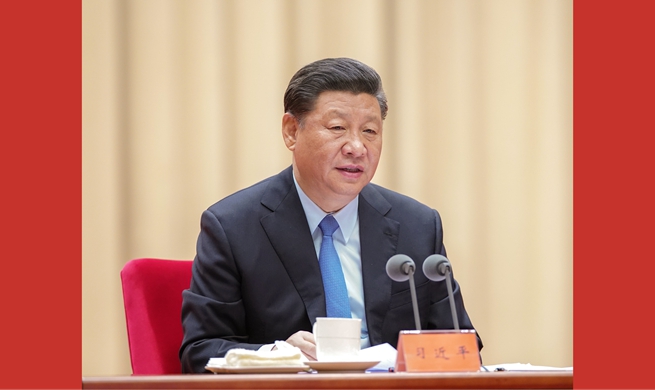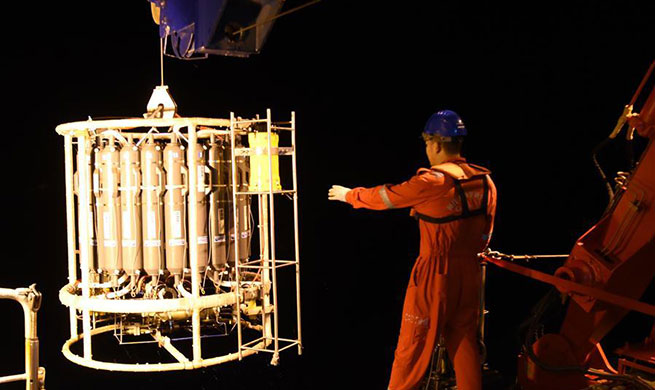by Eric J. Lyman
ROME, May 31 (Xinhua) -- Luigi Di Maio, head of the beleaguered Five-Star Movement, one of the two political parties supporting the year-old government of Prime Minister Giuseppe Conte, easily survived the first challenge to his leadership.
Analysts said the 32-year-old deputy prime minister will have plenty more obstacles to clear in the coming weeks and months.
The Five-Star Movement, a populist anti-establishment party founded by comedian-turned-activist Beppe Grillo in 2009, reached its high-water mark last year, when it finished the March 4 general election with nearly a third of the vote.
Under Di Maio's leadership, the party formed an unlikely coalition with the League, a right-wing, nationalist party, with Conte, an independent, nominated by the Five-Star Movement to be head of government.
Things have gone downhill for the Five-Star Movement since then.
In the most recent setback, the party won just 17 percent of the vote in Sunday's elections for members of the European Parliament, less than half that of the League, its coalition partner. The finish was also more than five percentage points behind the center-left Democratic Party, the main opposition party. The results of that vote were so disappointing that some in the party called for Di Maio to be replaced.
To tamp down opposition, Di Maio called for an Internet confidence vote for the party faithful on Thursday. He survived, easily, winning around 80 percent of the votes cast by 56,127 party members. The total nearly matched the 82-percent total he received in 2017 when he replaced the movement's founder, Grillo.
"Di Maio resolved the problem in a way unique to the Five-Star Movement, one member, one vote, true to the organization's roots as a movement rather than a true political party," Nicola Pasini, a political scientist with the University of Milan, told Xinhua.
"The problem for Di Maio is that the strategies that make him popular among the members of the Five-Star Movement have played less well when he's negotiating against the League," Pasini said.
Flavio Chiapponi, a professor of political communication at the University of Pavia, said that Di Maio still has the support of Grillo, which counts for a lot in the Five-Star Movement.
"It would have been too soon to get rid of Di Maio," Chiapponi said in an interview. "It could happen in the future, but I think he will have a chance to turn things around. In Italian politics, things can change very quickly."
Reversing the Five-Star Movement's fortunes could be difficult with an increasingly emboldened League as its coalition partner.
Matteo Salvini, head of the League and the other deputy prime minister, has said that in the wake of his party's strong finish in the European Parliament vote he planned to push his party's agenda.
On the top of Salvini's list is instituting a flat income tax for individuals and restarting the multi-billion-euro high-speed rail project between the northern Italian city or Turin and Lyon in France. The Five-Star Movement has opposed both measures, and Salvini has said that if Di Maio does not help pass the measures, the League could shop around for a new coalition partner.













